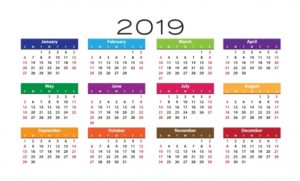Writing a blog for your business website is acknowledged to be a good thing, but what should you be blogging about?
The obvious things to put in your blog are items such as a new service, changes to opening hours, awards or celebrations, special offers. 
But what is the purpose of your blog?
It’s very simple – the purpose of your blog is to attract people to your business. No more, and no less.
So you need more than the obvious things.
Purpose of a blog
There are several ways that your blog can draw people in:
- It can show your authority in your area. Making people think ‘ooh, these folks know what they’re talking about’, is a good start to encouraging them to spend their money with you.
- Make you seem interesting and approachable, someone to do business with. If people like you, they’re more likely to buy from you.

- Draw customers to you, as they Google related topics, or find you on social media. People who might not otherwise find you might stumble on your site by accident. An example: they Google ‘beach games’, and you’ve blogged about the best family-friendly beach games, on your campsite’s blog. Then they think you’re a nice, friendly campsite, and decide to visit.
- Rank you higher on Google than a static shop-window website. It is an unfortunate thing, but we don’t write blogs purely for people to read. Google checks websites to see whether they’re still alive, and a good, regularly updated blog will help Google to rank your website higher.
What do you put in it then?
Write about what you know, that your readers don’t know.
Think about the breadth of your business, the peripherals, the stuff that interests you that intersects with your business – and write about it.
- Behind the scenes is always good. People are nosy, so tell them about your services, your equipment, your staff (new chef), back-stories to your products or services, your history, local/interesting suppliers, customer stories, the list goes on!

- Your immediate area. Your customers may not know much about Cornwall, or wherever you’re from. Talk about your geographic area, and you may help the local tourist industry, even if you’re a tree surgeon.
- Explore topics around your area. For a hotel, give top tips for packing a suitcase; for an eco-friendly holiday business, try top green holiday essentials; for a bar or café, what about tips for reducing single-use plastics (and sign up to ReFill, the movement allowing people to refill their own water bottles in cafes and bars)?
- Look at your calendar. What are the major events in your business calendar? Mother’s Day, Christmas, the Royal Cornwall Show? Blog about them, run special offers before them, encourage people to think about that event and you in the same thought!
And discretely mention your business, too.
Are business audiences different?
If you’re writing for a business audience, it’s a mistake to forget that you’re talking to human beings. Whichever facet of the business you need to be dealing with, whether it’s the front desk, HR team, accountant, purchasing manager or CEO, they are still people, and will deal more readily with real people.
You need to strike the right balance between technical language and dumbing-down. Yes, most of the people reading your website will be experienced, and know what they’re looking for BUT you may have a new business owner, someone who’s just expanding their business’s range into your area, or someone on their first day at work (even if their predecessor knew you well). Give basic language to start with, always give the full version of every abbreviation for the first time you use it, and then go into the detail.
Sell the benefits to those reading. You may be terribly excited about your new call handling system, but why should they care? They’ll care if it means their calls are handled faster, and they get put through to the right person on the first attempt.
And the same goes double with the product or service you’re trying to get them to purchase!
Most of all, be interesting. There are dozens of ways to describe accounting, but you’re more likely to choose an accountant that has an interesting and well-written website, than one that has all the technical details laid out in laborious detail. The details will form part of the conversation you have before you sign on the dotted line, for sure, but you’re likely to make the decision based on whether you ‘click’ with them.
So, the one thing to take away – know who your audience is, and talk to them!


Leave a Reply